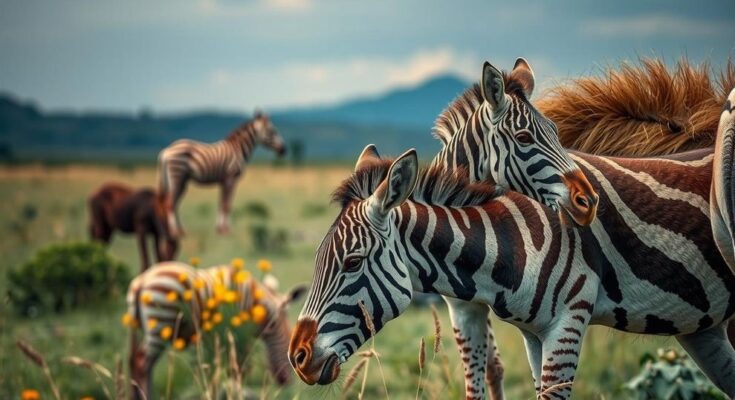A coalition of animal protection organizations strongly opposes Namibia and Zimbabwe’s extensive wildlife culling plans, claiming that these actions threaten endangered species and violate sustainable management principles. The coalition emphasizes alternative solutions to food security and human-wildlife conflict, condemning the proposed methods as ineffective and damaging to ecology and local economies.
In a united stance, a coalition of prominent animal protection and conservation organizations, including World Animal News, Peace 4 Animals, Born Free USA, and the Born Free Foundation, has voiced intense opposition to the alarming plans by Namibia and Zimbabwe to initiate extensive culls of wildlife, particularly elephants. This revelation, announced in late August 2024, outlined Namibia’s intention to kill 1,002 wild animals, with 83 of these being elephants, while Zimbabwe proposed the extermination of at least 200 elephants. The coalition contends that such measures—excused under the pretense of aiding drought-impacted communities and reducing human-wildlife conflicts—mask the far-reaching consequences these actions impose on ecological balance and the survival of endangered species. Culls are framed as solutions to provide meat and alleviate environmental pressures; however, experts assert that this approach is neither sustainable nor effective. Killing wildlife will not ensure food security for millions, and it could inadvertently escalate poaching activities and the illegal wildlife trade. Furthermore, culling is unlikely to resolve conflicts between humans and wildlife, hampering conservation efforts and degrading the social structures among these animal populations. This initiative diverges starkly from past ethical standards, raising concerns about the reemergence of policies that have faced severe criticism since the mid-1990s for their inhumane implications. With African savanna elephants classified as Endangered by the IUCN Red List, the purported claims of overpopulation lack scientific substantiation, as recent studies indicate stable population numbers since 2014. The coalition urges both Namibian and Zimbabwean authorities to reconsider these drastic measures and instead pursue sustainable solutions, such as investing in agricultural practices and providing essential food supplies to affected communities. The ongoing drought in the region necessitates innovative approaches rather than reverting to harmful practices that could jeopardize local wildlife and conservation efforts. In conclusion, to safeguard both the natural environment and human welfare, the coalition calls upon governments to prioritize humane alternatives to wildlife management, ensuring that the needs of local populations and the biodiversity of the region coexist harmoniously.
The current discourse centers on the proposed culls of elephants and other wildlife in Namibia and Zimbabwe, actions which are being conducted under the rationale of addressing drought impacts and human-wildlife conflict. However, various conservation groups argue that these measures are detrimental not only to the threatened species but also to the environmental ecosystems that rely upon them. The outcry from these organizations stems from a deeper concern about sustainable wildlife management and the long-term implications of such drastic actions on both ecological integrity and tourism-based economies.
The coalition’s position against the wildlife culls in Namibia and Zimbabwe underscores a critical need for alternative strategies that prioritize conservation over extermination. By advocating for sustainable solutions to food security and human-wildlife coexistence, these organizations highlight the importance of preserving biodiversity while addressing human challenges effectively. It is imperative that local governments consider these alternatives to avert a crisis affecting both wildlife and vulnerable communities.
Original Source: www.zawya.com




